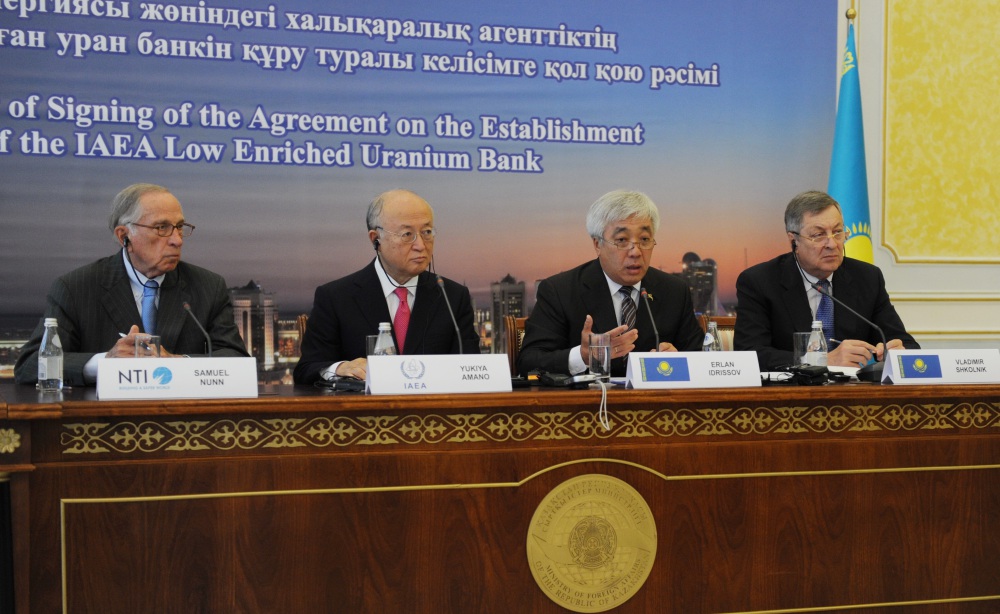
Jessica C. Varnum
Senior Research Associate, The James Martin Center for Nonproliferation Studies
About the image
Several U.S. bilateral nuclear cooperation agreements are set to expire in the next four years, and a long list of nuclear neophytes are interested in concluding new agreements with the United States.
These "123 agreements," named after Section 123 of the Atomic Energy Act of 1954, govern the conditions for nuclear cooperation with foreign partners. Throughout the next four years, the Obama Administration is set to face renewal negotiations with South Korea, China, and Taiwan, as well as negotiations with Jordan, Vietnam, and Saudi Arabia to conclude new agreements.
In a new issue brief, Jessica C. Varnum of the Center for Nonproliferation Studies examines the debate over whether stricter nonproliferation preconditions for concluding these "123" nuclear cooperation agreements would enhance or undermine their value as instruments of U.S. nonproliferation policy.
"It is almost universally accepted by U.S. policymakers that a world in which other countries agree to forswear enrichment and reprocessing is preferable from a nonproliferation perspective," writes Varnum. "Where disagreement arises is in considering how serious the nonproliferation fallout would be if the United States insisted on no-[enrichment and reprocessing] as a condition for nuclear cooperation and some or all of its prospective foreign partners said 'no.'"
Given the number of 123 agreements on the horizon, the U.S. cannot afford to kick the can down the road. "Crafting a strategically coherent U.S. policy on nuclear cooperation that minimizes negative nonproliferation consequences, and also respects broader U.S. economic and strategic interests, will therefore be one of the key nonproliferation challenges facing the Obama administration in its second term," writes Varnum.
Read the issue brief.
Sign up for our newsletter to get the latest on nuclear and biological threats.
Analysis from CNS's Leonard Spector provides an interactive story map, detailing how Iran and North Korea procured materials for their nuclear programs.
IAEA and the Gov't of Kazakhstan today signed an agreement that will allow the country to host an international LEU bank that will provide countries with an LEU supply.
During the 17th meeting of the Global Dialogue, participants developed plans to ensure successful outcomes at ICONS and leverage that momentum to reinvigorate nuclear security internationally.



